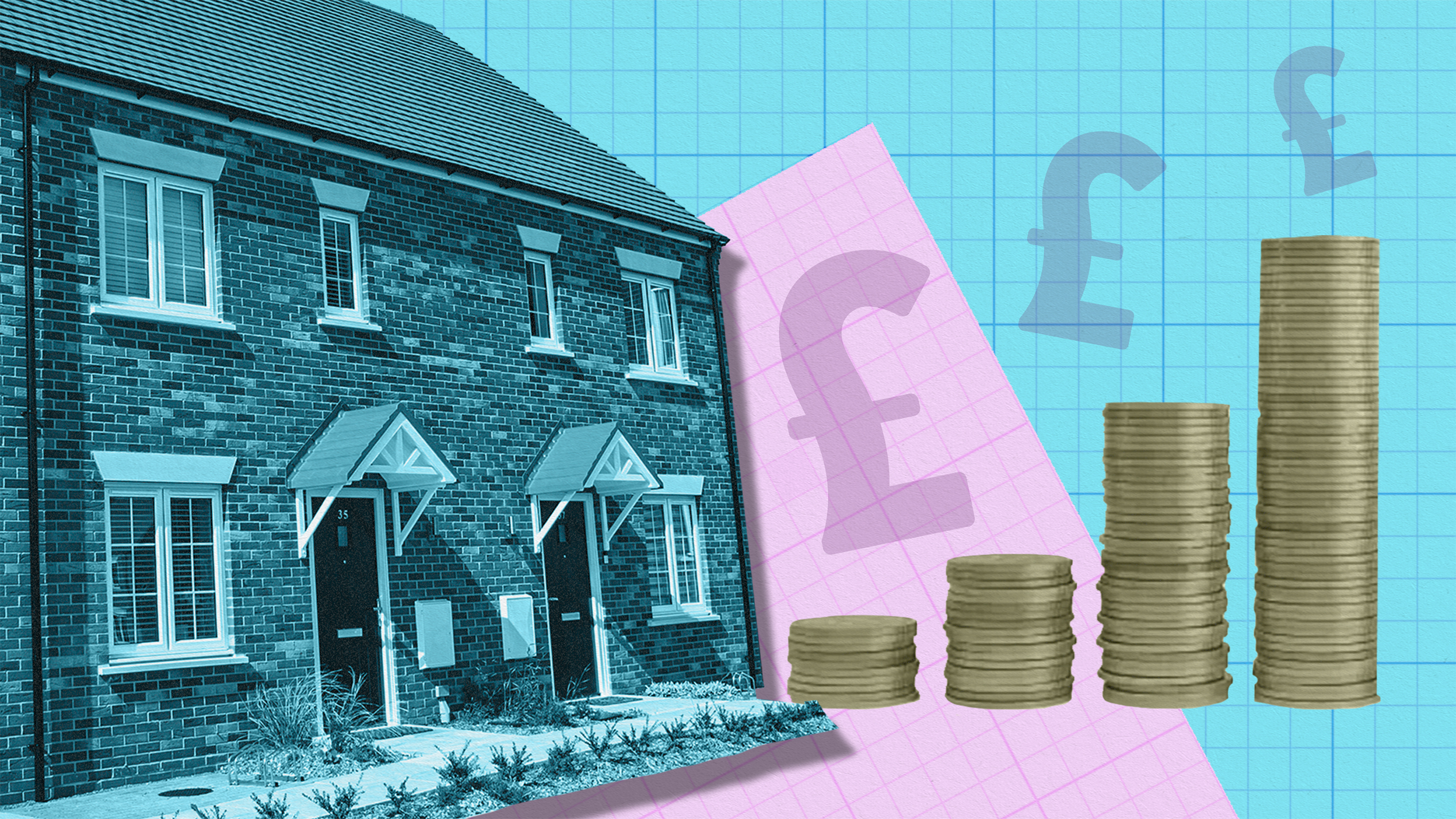Mortgages explained
A 5 minute read

Buy a home; the holy grail of “I’ve made it in life”.
So, we are told. It’s an exciting decision and one that stirs pride in any prospective homeowner. But not only that, home ownership can be a great financial boon in the long-term. Say goodbye to eye-watering rent to line the pockets of your landlord and say hello to a tangible asset worth a damn sight more than any rent you’ve paid before.
But there can be a lot to dissuade even the most intrepid first-time buyer, like hefty deposits and a mortgage, as well as finding affordable and safe housing.
Getting a foot onto the rung seems rare, but there are some things you can do to even the odds.
Save, save, save
You’ve got to start somewhere. Saving for a deposit means putting some money away for good. An untouchable stash.
Generally, you will need to try to save at least 5% of the cost of the home you’d like to buy.
So, if you want to buy a home costing £150,000, you’ll need to save at least £7,500 (5%) for the deposit.
If you can save more, this will give you access to a wider range of cheaper mortgages and a lower interest rate.
So how do you save when you’ve got bills to pay, food to eat, and a life to live in the meantime?
A LISA might be a good place to start. Or, to those on more formal terms, a Lifetime Individual Savings Account. Or a Lifetime ISA. Whichever you feel comfortable with.
A LISA lets you save up to £4,000 a year into a savings account that accrues interest over time or invests in stocks and shares. You can choose the kind of account you’d like, but that’s not the best part. The best part is where the government pays in 25% of whatever you contribute up to £1,000 a year. That means you could literally get a bonus of £1,000 a year.
So, what’s the LISA catch? You can only withdraw the money for buying a home or for retirement. And the value of the property can’t exceed £450,000.
Of course, regular monthly budgeting can help you get your foot on to the property ladder. If you’re unsure of where to start, try using our handy monthly tracker to boil your budget to the basics.
Welcome to the world of mortgages
Grab a cuppa! There’s a bit to get through here. The majority of those looking to get on the property ladder will need to take out a mortgage to buy a home.
A mortgage is essentially a loan from a bank or building society. It’s a secured loan, which means the bank has the right to take back and sell the property if you cannot keep up your repayments. You'll repay your mortgage in monthly instalments over a set period of time - usually 25, 30 or 35 years.
There are two ways to source a mortgage – you can do it yourself and get a mortgage directly through a lender, or you could find a mortgage through a broker or independent financial adviser (IFA). Unbiased can help you to find a regulated mortgage broker or IFA.
There are many different types of mortgages. Some are designed specifically for first-time buyers, others are designed for landlords, and others still are for remortgaging only.
Most homebuyers choose repayment mortgages, this is where you pay back some of the loan and some interest each month. The other main alternative is an interest-only mortgage - this is where you just pay the interest each month then repay the sum you originally borrowed at the end of the mortgage term.
Within these two categories, there are several types of mortgages you can choose from. Generally, the most common are:
Fixed-rate mortgages
- Tracker mortgages
- Discount mortgages
- Offset Mortgages
The first thing to think about when looking for a mortgage is the interest rate. The interest rate is a percentage of money you’ll pay back based on the amount you borrowed. You'll typically want a low mortgage interest rate, as this means you'll pay less to the lender in borrowing costs.
Interest rates are usually set by the lender, but they may follow or be influenced by the base interest rate set by the Bank of England.
When you take out a mortgage, you might start out on a fixed rate deal for a set number of years – this means the interest rate will stay the same for an agreed number of years – despite any changes to the base interest rate set by the Bank of England.
After this, you will normally be moved to your lender’s standard variable rate. This is unless you transfer to another mortgage - either with your existing lender, or move to a new lender.
No matter which type of mortgage you choose, make sure you compare rates across the different types and amongst different providers, to get the best deal.
Government help
There are a handful of other government-funded initiatives that can help you to get a rung on the property ladder.
Shared Ownership, also referred to as part-buy part-rent, is available to first time buyers, those who are in the process of selling their property, or have previously owned a home but have since sold it. It lets you buy a share of a home, usually between 25-75% of the home’s full market value and you pay rent to the landlord for the share they own. You can always buy more shares of your property over time and eventually own the place outright.
Shared ownership homes are offered by housing associations, local councils, and other organisations. They are called ‘providers’ or the landlord. To be eligible for Shared Ownership, you must be at least 18 years old and unable to buy on the open market and your maximum household income must not exceed £80,000 per annum (£90,000 in London).
All shared ownership homes (houses and flats) are leasehold properties.
If you’re living in council housing and have decided that the time is right to buy, you could make use of the Right to Buy scheme, where you have the right to purchase your home, and you be able to do this at a discount.
You may also be able to get financial help from the government to buy a home via their Affordable Home Ownership Schemes.
Freehold or leasehold
There’s a lot of jargon in the world of finance and mortgages are no exception. A couple of other terms you may hear when looking to buy a property is ‘freehold or leasehold.’ If you want to buy a house, it’s likely you’ll buy the freehold. This means you own the property and the land it sits on.
If you’re buying a flat, you’ll be buying leasehold, or buying into a share of the freehold.
Credit score galore
Do you know the score? Your credit score is a statistic used to help lenders decide whether to give you a mortgage. It’s proof of your ability to manage and repay credit – which is what a mortgage is made up of. If you can’t prove you’re a safe pair of hands when it comes to money, you won’t get approved for a mortgage or you’ll be offered one with an incredibly high rate.
Managing niggling debts is a brilliant starting point for improving a credit score. But a more unknown yet easy step is ensuring that you’re registered to vote. Not only will you let lenders know who you are, you’ll also be able to vote in elections, too. Which is pretty important.
If you’ve not got a credit card, now might be the time. If you can manage credit card debt by making controlled and regular repayments, you’re on course for credit score stardom.
The affordability meter
Do you know what sort of property value is in your price range? We all have a dream house, whether it’s in the big smoke or on a rural and rambling plot of land, but being realistic about what you can afford and finding the best deal can help narrow your focus. Money Supermarket’s mortgage calculator or MoneySaving Expert mortgage calculator could help you find what you’re looking for.
And remember, aside from the deposit and the monthly mortgage payments, there are other costs you’ll need to factor in, such as:
- Survey costs
- Solicitor or conveyancer fees
- Mortgage arrangement and valuation fees
- Stamp Duty (Land and Buildings Transaction Tax in Scotland, or Land Transaction Tax in Wales).
Buying a home is a major financial milestone. If you do your research, be realistic about what you can afford and shop around to find the best deal – that dream home will be yours before you know it.
Information correct as at December 2023.
